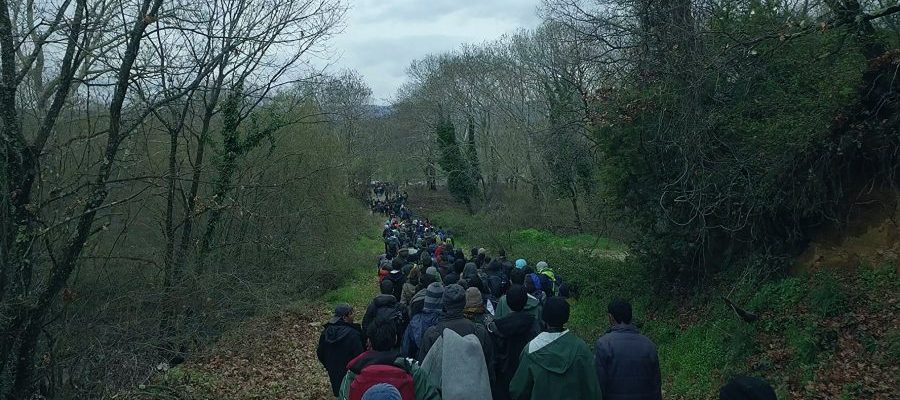Review: 'Human Flow' Powerfully Depicts the Refugee Crisis

Megan Hayman ’19 / Emertainment Monthly Staff Writer
Human Flow is a film with many beautiful shots. Shots of landscapes, oceans, and cities establish a sense of tranquility, of the beauty of the natural world. The first shot of the film is the Mediterranean Sea, lulling the audience into its peacefulness. However, Human Flow is a film with many ugly shots as well. There is one shot of the decomposing body of a child in the Iraqi desert as trucks go by in the distance. The audience is now forced to see this horror, to be complicit in a sense. Both shots linger on their subjects, unbreaking for some time, and each conveys a message whilst in great contrast to each other, work to form the central thesis of the film: the flaw in the manmade concept of borders and the harm it causes.
Director Ai Weiwei is someone who understands the plight of refugees better than most. He himself has been famously harassed by the government of his own country for his outspokenness and had to leave. His presence throughout the film is not hidden. In several scenes, he interacts with the refugees in their camps in some of the few moments of levity Human Flow has to offer. He jokingly exchanges his Chinese passport with a Syrian refugee and even takes a moment to comfort a woman who breaks down in the middle of an interview. Whilst documentary objectivity is something that tends to be valued, Weiwei doesn’t bother hiding himself and his perspective from the film. Rather, he uses it to show his empathy for his subjects and plea for on their behalf.

The crisis tackled in Human Flow is not just in Syria; it is in Burma, in Iraq, in Mexico, in Palestine, in Kenya. Weiwei takes a global look at refugees, examining the experiences of people all over the world. In some parts, the movie seems to overstretch its reach, looking some areas more than others—the Middle East gets the most attention. Facts crawl across the bottom of the screen, trying to give as much information as possible. In some cases, it works, particularly the quotes by poets and writers from natives of the countries being covered. Other times, it can feel like an overload. Ultimately, while this can feel like too much being covered, in a way, the great scope of the film serves a larger purpose: to show how extensive the problem really is.
One thing that often gets lost in discussions about refugees is the humanity of those involved. Human Flow is a movie that tries to show this, not by focusing on a single story, but by focusing on the stories of many. Of all the interviews that occur of the course of the film, all show people in crisis, people trying to start over after their lives have been torn apart. None are leaving their countries because they want to, but because they have to because their lives are on the line. The desperation of these people as they fight for basic necessities like food and shelter is heartbreaking. Each of these experiences adds up to create a bigger picture. The lives of human beings are more important than the borders society has put up. Weiwei wants to affect the conversation around the refugee crisis with this movie. Maybe, he can.
Overall Grade: A
Watch The Trailer:
[embedyt] https://www.youtube.com/watch?v=DVZGyTdk_BY[/embedyt]